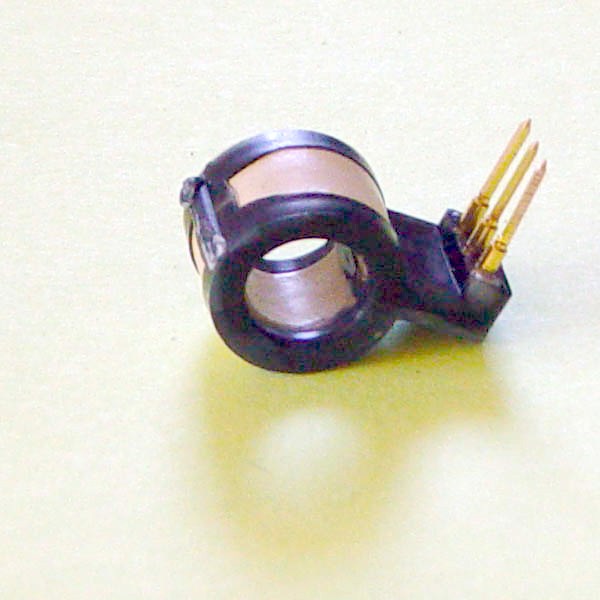What is a Hall Effect Sensor and why should you care? It is (very) basically a tiny electromagnet strapped next to a wire or other current source that detects the presence of current. So that's it: it is just a reliable way to detect current. Why should you care? I'm not sure.
— James Albright

Updated:
2017-09-15
Those of us flying Gulfstreams are subject to the "HES" in many of our schematics as if it is something of critical importance. I think it is just a gizmo that allows us to measure current and give it a number, or to detect the presence of any current at all. If you want to detect when an instructor is trying to appear smart but isn't, this page is for you.

The "Hall Effect" was discovered in 1879 by Edwin Hall while working on his doctoral degree at Johns Hopkins University. The Hall effect is due to the nature of the current in a conductor. Current consists of the movement of many small charge carriers, typically electrons, holes, ions (see Electromigration) or all three. When a magnetic field is present, these charges experience a force, called the Lorentz force. When such a magnetic field is absent, the charges follow approximately straight, 'line of sight' paths between collisions with impurities, phonons, etc. However, when a magnetic field with a perpendicular component is applied, their paths between collisions are curved, thus moving charges accumulate on one face of the material. This leaves equal and opposite charges exposed on the other face, where there is a scarcity of mobile charges. The result is an asymmetric distribution of charge density across the Hall element, arising from a force that is perpendicular to both the 'line of sight' path and the applied magnetic field. The separation of charge establishes an electric field that opposes the migration of further charge, so a steady electric potential is established for as long as the charge is flowing.
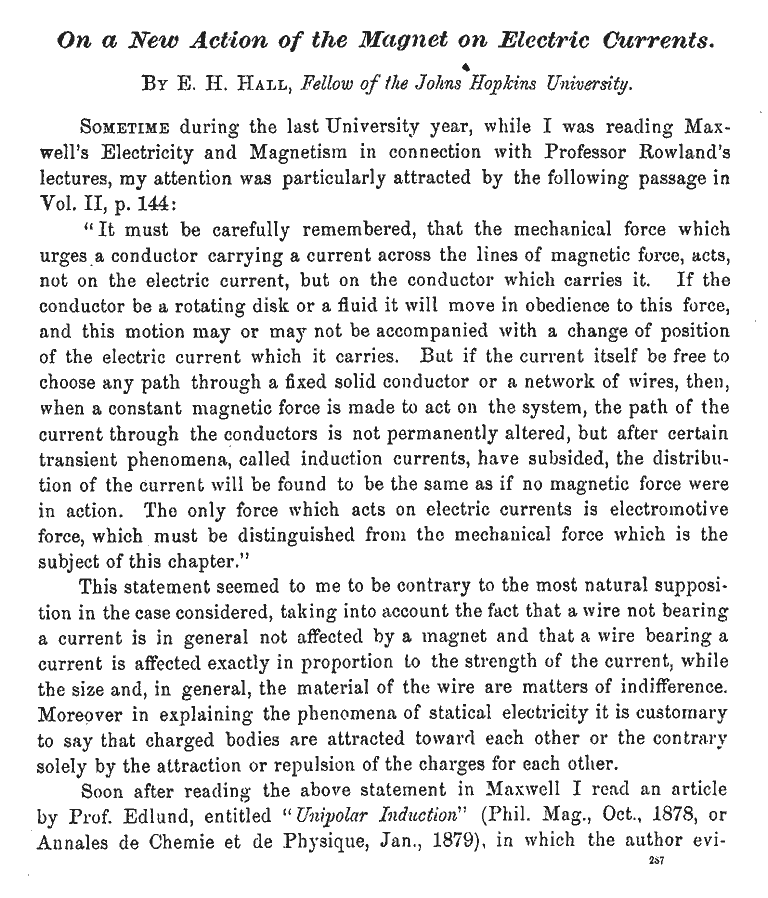
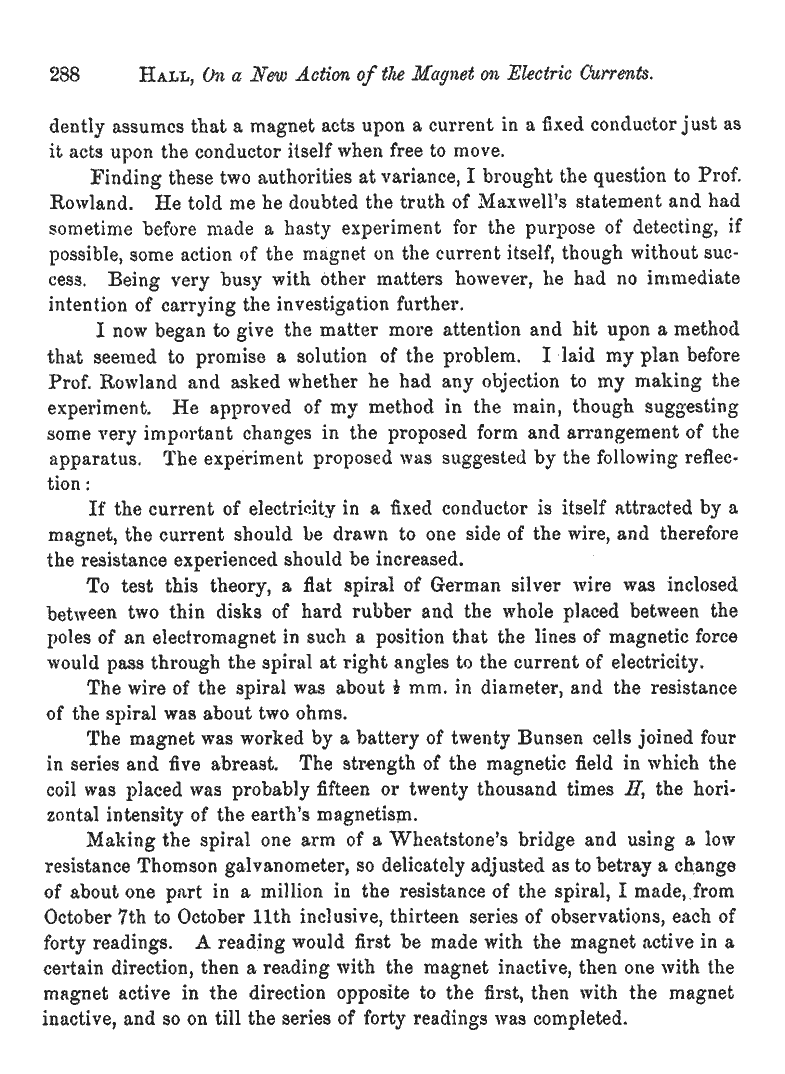
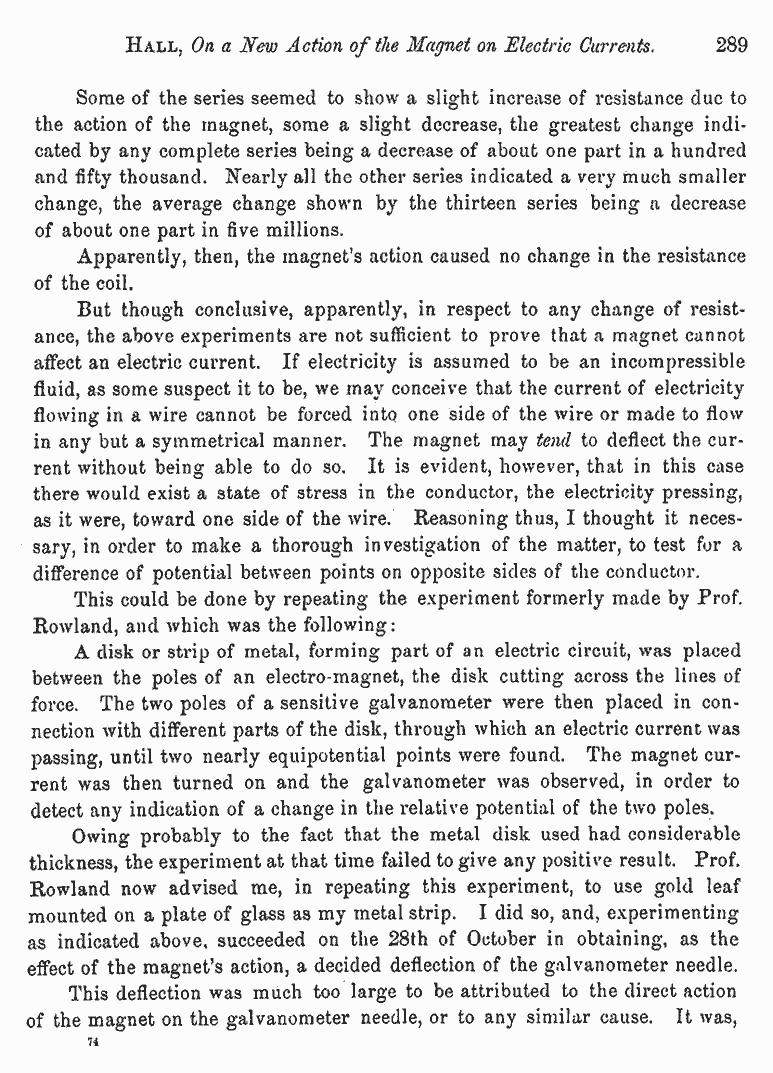
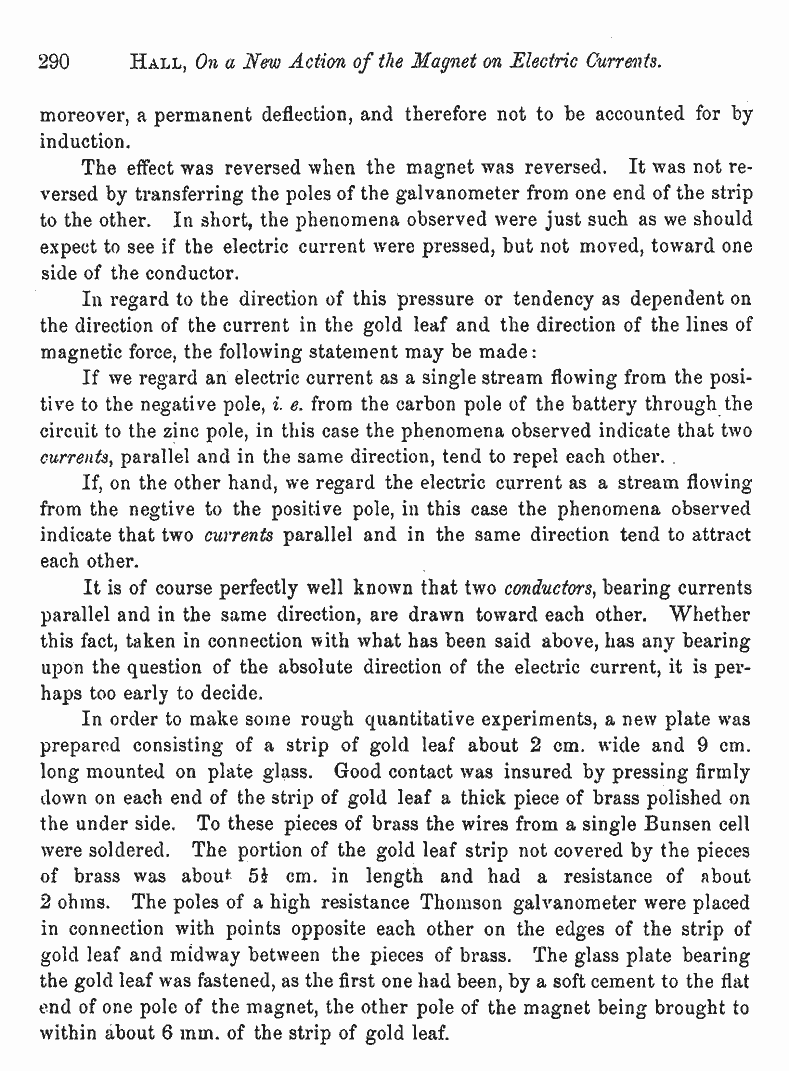
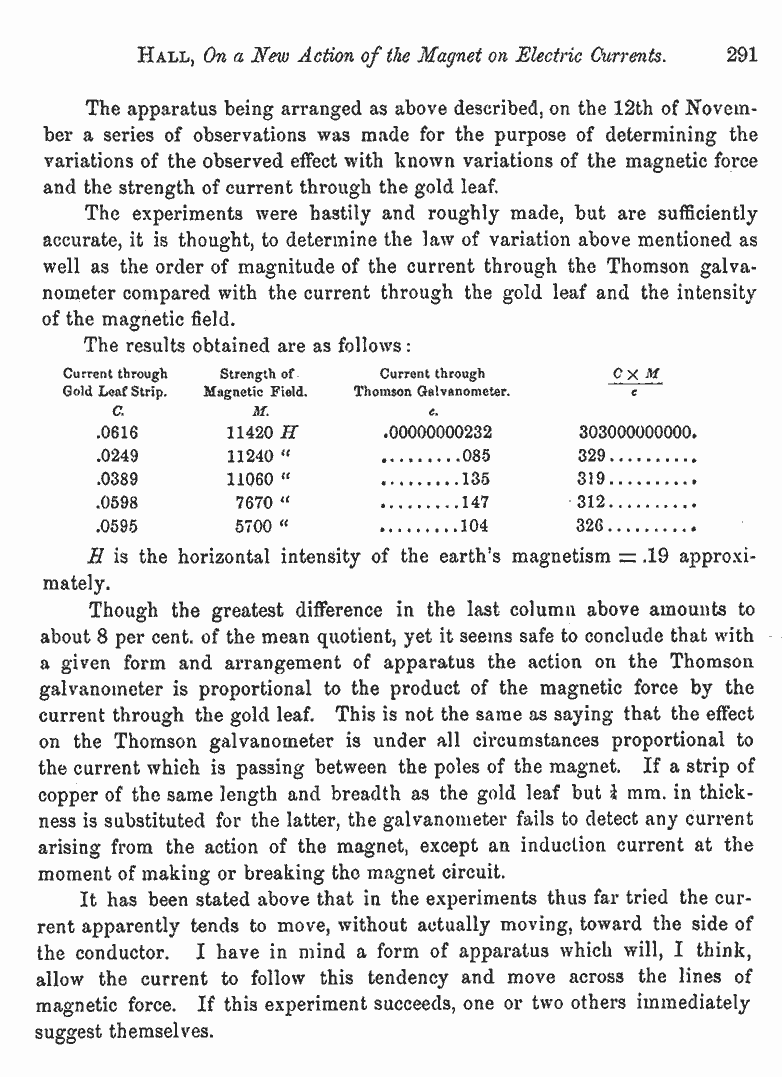
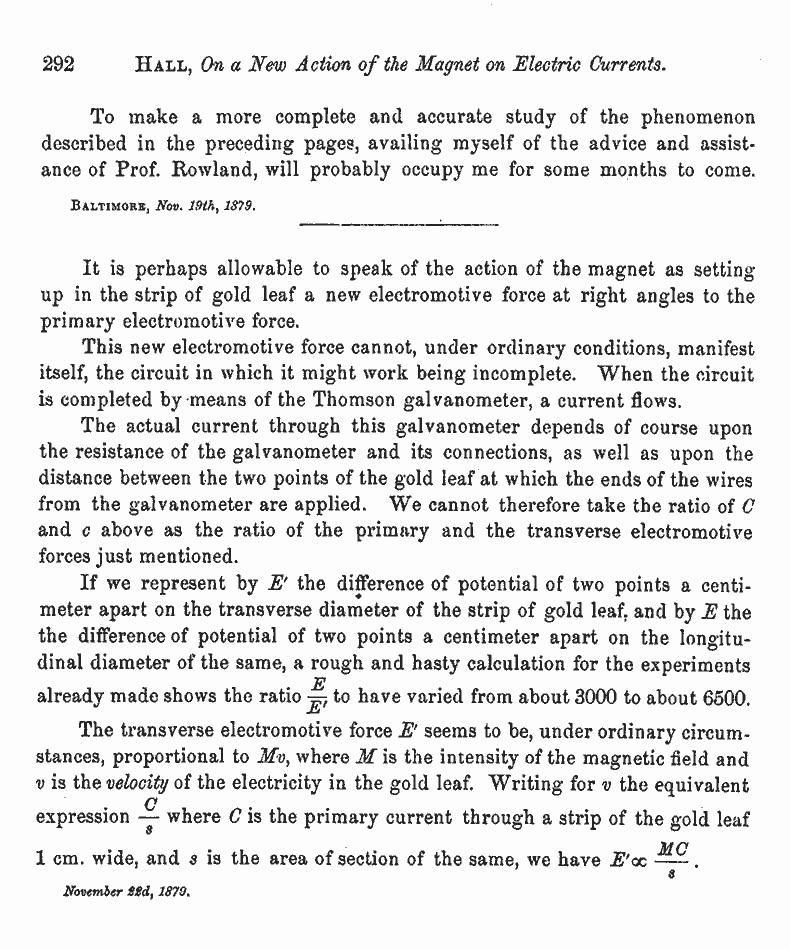
References
(Source material)
Hall, Edwin, On a New Action of the Magnet on Electric Currents, American Journal of Mathematics 2 (3): 287-92, 1879.
Pengro, D.B., etal, The Hall Effect, University of Washington, 19 June 2015
